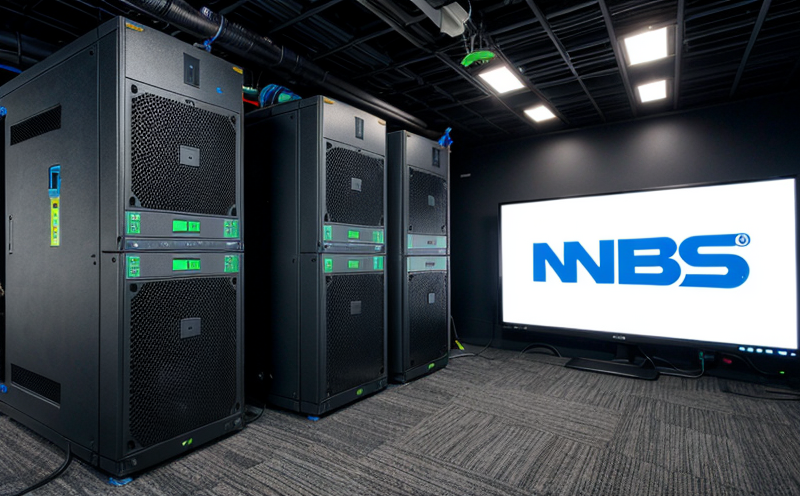
-
NEBS and Telecommunication Standards-
NEBS Standards for Network Equipment-
What Does NEBS Certification Entail for Network Equipment?
We provide comprehensive solutions designed to help our clients mitigate risks, enhance performance, and excel in key areas such as quality, health & safety, environmental sustainability, and social responsibility.
Discover
For many years, our organization has been operating successfully, boasting modern laboratories that meet international standards. These laboratories are equipped with the latest technology devices and equipment, and we have built a strong team of experienced and trained personnel to operate them.
DiscoverWelcome to Eurolab, your partner in pioneering solutions that encompass every facet of life. We are committed to delivering comprehensive Assurance, Testing, Inspection, and Certification services, empowering our global clientele with the ultimate confidence in their products and processes.
Discover
-
NEBS and Telecommunication Standards-
NEBS Standards for Network Equipment-
What Does NEBS Certification Entail for Network Equipment?What Does NEBS Certification Entail for Network Equipment?
Network equipment vendors often invest significant resources to ensure their products meet rigorous standards for reliability, performance, and safety in various environments. One such standard is the Network Equipment Building System (NEBS) certification, which plays a crucial role in validating the compatibility of network infrastructure with the specific needs of telecommunications carriers.
NEBS Certification Overview
NEBS certification is a set of requirements that ensures network equipment can operate reliably and efficiently within carrier networks, including central offices, cell towers, and other outside plant facilities. The NEBS standard encompasses various aspects, such as mechanical, electrical, environmental, and operational performance. In essence, NEBS-compliant equipment must be capable of withstanding the physical conditions encountered in these environments while providing consistent and reliable service.
NEBS Certification Process
The process of obtaining NEBS certification involves several steps:
1. Product Design: Manufacturers need to design their products with specific requirements for reliability, maintainability, and environmental protection.
2. Testing and Validation: Products undergo rigorous testing to assess compliance with NEBS standards.
3. Documentation: Detailed documentation is required to demonstrate product capabilities and conformance with regulatory requirements.
NEBS Mechanical Requirements:
Temperature Range
: -40C to 65C
Humidity Level
: 5 to 95
Vibration Resistance
: Equipment should be able to withstand vibrations during transportation and installation.
Power Consumption
: Devices should have low power consumption to minimize energy costs and environmental impact.
EMC Compliance
: Products must comply with relevant electromagnetic compatibility (EMC) regulations.
NEBS Environmental Requirements:
Low-Pressure Testing
: Devices should be able to operate under reduced air pressure conditions.
High-Altitude Testing
: Products are tested at altitudes above 3,000 meters (10,000 feet).

Renewable Energy Testing and Standards
Renewable Energy Testing and Standards: Ensuring a Sustainable Future The world is rapidly transiti...

Battery Testing and Safety
Battery Testing and Safety: A Comprehensive Guide As technology continues to advance, battery-power...

Railway Industry Compliance
Railway Industry Compliance: Ensuring Safety and Efficiency The railway industry is a critical comp...

Cosmetic Product Testing
The Complex World of Cosmetic Product Testing The cosmetics industry is a multi-billion-dollar ma...

Automotive Compliance and Certification
Automotive Compliance and Certification: Ensuring Safety and Efficiency The automotive industry is ...

Construction and Engineering Compliance
Construction and Engineering Compliance: Ensuring Safety, Quality, and Regulatory Adherence In the ...

Pressure Vessels and Installations Testing
Pressure Vessels and Installations Testing Pressure vessels are a critical component of various ind...

Industrial Equipment Certification
Industrial equipment certification is a critical process that ensures industrial equipment meets spe...

Agricultural Equipment Certification
Agricultural equipment certification is a process that ensures agricultural machinery meets specific...

Electrical and Electromagnetic Testing
Electrical and Electromagnetic Testing: A Comprehensive Guide Introduction Electrical and electrom...

Electromechanical Safety Certification
Electromechanical Safety Certification: Ensuring Compliance and Protecting Lives In todays intercon...

Lighting and Optical Device Testing
Lighting and Optical Device Testing: Ensuring Performance and Safety Lighting and optical devices a...

Hospitality and Tourism Certification
Hospitality and Tourism Certification: Unlocking Opportunities in the Industry The hospitality and ...

Pharmaceutical Compliance
Pharmaceutical compliance refers to the adherence of pharmaceutical companies and organizations to l...

Transportation and Logistics Certification
Transportation and Logistics Certification: A Comprehensive Guide The transportation and logistics ...

Environmental Impact Assessment
Environmental Impact Assessment: A Comprehensive Guide Environmental Impact Assessment (EIA) is a c...

Environmental Simulation Testing
Environmental Simulation Testing: A Comprehensive Guide In todays world, where technology is rapidl...

IT and Data Center Certification
IT and Data Center Certification: Understanding the Importance and Benefits The field of Informatio...

Chemical Safety and Certification
Chemical safety and certification are critical in ensuring the safe management of products and proce...

Healthcare and Medical Devices
The Evolution of Healthcare and Medical Devices: Trends, Innovations, and Challenges The healthcare...

Food Safety and Testing
Food Safety and Testing: Ensuring the Quality of Our Food As consumers, we expect our food to be sa...

Trade and Government Regulations
Trade and government regulations play a vital role in shaping the global economy. These regulations ...

Aviation and Aerospace Testing
Aviation and Aerospace Testing: Ensuring Safety and Efficiency The aviation and aerospace industr...

Product and Retail Standards
Product and Retail Standards: Ensuring Quality and Safety for Consumers In todays competitive marke...

NEBS and Telecommunication Standards
Network Equipment Building System (NEBS) and Telecommunication Standards The Network Equipment Bu...

Fire Safety and Prevention Standards
Fire Safety and Prevention Standards: Protecting Lives and Property Fire safety and prevention stan...

Consumer Product Safety
Consumer Product Safety: Protecting Consumers from Harmful Products As a consumer, you have the rig...

Military Equipment Standards
Military Equipment Standards: Ensuring Effectiveness and Safety The use of military equipment is a ...

Energy and Sustainability Standards
In today’s rapidly evolving world, businesses face increasing pressure to meet global energy a...

MDR Testing and Compliance
MDR Testing and Compliance: A Comprehensive Guide The Medical Device Regulation (MDR) is a comprehe...